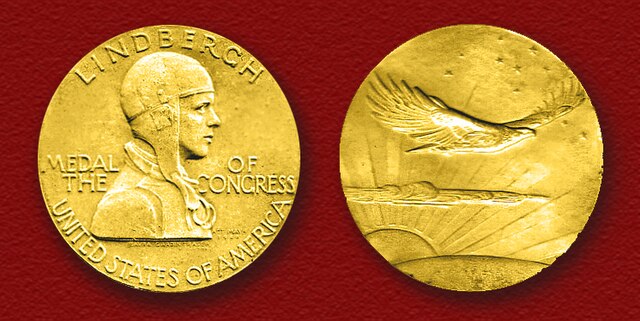Presidential Medal of Freedom
The Presidential Medal of Freedom is the highest civilian award of the United States, alongside the Congressional Gold Medal. It is an award bestowed by decision of the president of the United States to recognize people who have made "an especially meritorious contribution to the security or national interests of the United States, world peace, cultural or other significant public or private endeavors". The award is not limited to U.S. citizens, and, while it is a civilian award, it can also be awarded to military personnel and worn on the uniform. It was established in 1963 by President John F. Kennedy, superseding the Medal of Freedom that was initially established by President Harry S. Truman in 1945 to honor civilian service.
Medal and accoutrements, including the service ribbon, miniature and lapel badge
The Presidential Medal of Freedom with Distinction, as worn with white tie
A. Philip Randolph receiving the Medal from President Lyndon Johnson at one of the first ceremonies, 1964
President Richard Nixon presenting the Presidential Medal of Freedom to Duke Ellington, 1969
The Congressional Gold Medal is the oldest and highest civilian award in the United States, alongside the Presidential Medal of Freedom. It is bestowed by vote of the United States Congress. The Gold Medal seeks to impart the highest expression of national appreciation for distinguished achievements and contributions by individuals or institutions.
Etching of medal awarded to John Paul Jones, the only Continental Navy officer to be awarded a gold medal
Medal awarded to Charles A. Lindbergh in 1930






